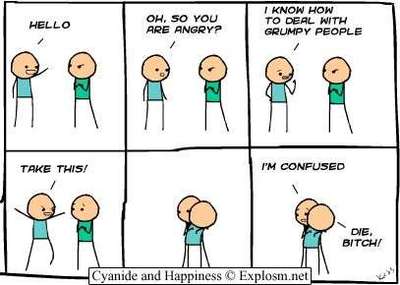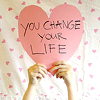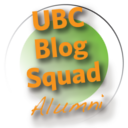Dear Friend,
You asked me how I managed to find not just one, but two, student jobs, when it seems so impossible to find any work at all. Campus jobs are highly coveted among stressed students already pressed for time but still desperately needing work, for one reason or another.
I’ve pulled together a few resources that I count on heavily to find work either within UBC or, at the very least, near it. Maybe none of it is new to you, and maybe you could even suggest some other resources for me, but I thought it would be good to put them all together in one place.
1. Work Study/Work Learn
Pay: Ranges from $12 to $20/hr, average being $16
Length: Maximum 10 hours/week
Work Study jobs for domestic undergraduate and graduate students and Work Learn jobs for international undergraduate students are definitely among the most prized jobs on campus, for their very high pay (thanks to a $9/hr subsidy).
To apply, check your eligibility first, then look up postings! You can sort by alphabetical order or (slightly more useful) by jobs posted after a certain date.
Postings theoretically remain on the website until they are filled; I’ve learned from previous experience, however, that postings don’t always go down as soon as this happens. Unfortunately, there’s also no way of seeing exactly what date a job was posted, so no clear way of guessing whether it’s really still open — so you’ll just have to go ahead and slave on those resumes and cover letters, and don’t hold out for just one job.
Also worth noting is that you can only work a maximum of 10 hours per week during the Winter Session (UBC rule). This may not be enough for people needing more money for tuition and so on, but these jobs are definitely the highest-paying part-times I know of, next to…
2. Access & Diversity
Pay: Ranges from $9 to $19/hr
Length: Maximum 10 hrs/week
I’m sure you’ve had at least one email asking if you would like to be a notetaker for a student taking one of your classes. Notetakers are paid a very decent wage by term, but did you know there are several other student positions? Yup, these are advertised through CareersOnline, or emailed to students. Jobs range from alternate text production (one of my part-times is e-text proof-reading, a very worthwhile position in my opinion), mobility assistance, and library access assistance, to peer tutoring, scribing, and exam invigilating.
3. CareersOnline
Pay: Varies
Length: Varies
UBC Career Services’ CareersOnline is the most reliable database of jobs available to students on- and off-campus that I know of. All students automatically get an account, so all you need to do is log in! You can search by many more parameters than Work Study/Work Learn: by city/location, by job type (full-time, part-time, casual, volunteer), keywords, etc.
Some of the best campus jobs, including the DRC, AMS Tutoring, and campus tour guiding, can be found here at the right times of the year.
Also frequently appearing at the beginning of the school year are jobs with AMS Food Services. Not as high-paying as Work Study/Work Learn, but more reliable in their hours, these are also jobs that get snatched up quickly. It’s best to apply as soon as you can if you want these!
I’d suggest visiting CareersOnline regularly, just to get an idea of when certain jobs appear, since you’ve got a couple more years to go, and this information will be useful to you in your later uni years.
4. AMS Safewalk
Pay: Currently around minimum wage
Length: Varies year by year
Safewalk’s been undergoing some changes, so I don’t know what the new hours and pay are like, but I do know that they’ve traditionally been a very well-paying job, so it’s something to consider if you’re a night owl.
Safewalk offers teams of two, one male, one female, to walk students around campus from 7 pm to 2 am. You’ll have to be ready to cover those shifts, so you’ll have to be a night owl to do those. This job is best for students who live on campus, and actually have a way to get back to their own beds at that hour in the morning. If you’re interested in this, send your resume to the email address listed on this page.
5. Co-op Programs
Pay: Varies
Length: Usually full-time work
I’m not sure if every faculty has a co-op program, but I know that Arts, Sciences, Engineering, and Commerce each have their own. The rules are different for each in terms of how long you have to work, and the pay ranges wildly, but what they all have in common is a fantastic opportunity to gain experience and build connections. My other current part-time job, for example, is the result of my first co-op term.
Even though the primary point of co-op is not to earn money per se, going into the co-op program can definitely be a strategic method of paying for your university education in alternating work and study terms rather than in giant lump sums each year. You also earn far more money working full-time during a term than you can part-time, and at least you won’t have to struggle with school and work at the same time.
6. UBC Grad Psychology Paid Studies
Pay: $10/hr, average
Length: Varies, about a couple of hours at a time at most
Get on the mailing list to become a test subject! Pick and choose which studies you’re willing to participate in, and get $10 in return for your time — a fairly easy, stress-free way of earning more than minimum wage when you’ve got a few spare hours. Quite a sweet deal, I think. (I haven’t done them yet, not having the time, but I have friends who said it was a great way of getting some extra cash. And it makes grad students happy. Think of how we’re expanding the boundaries of knowledge together!)
Those are all the places I can think of getting jobs from for now. If I think of anymore, I’ll let you know. If you have any suggestions, let me know! I’d love to expand on my list, just for future reference.
Love,
Lillienne






